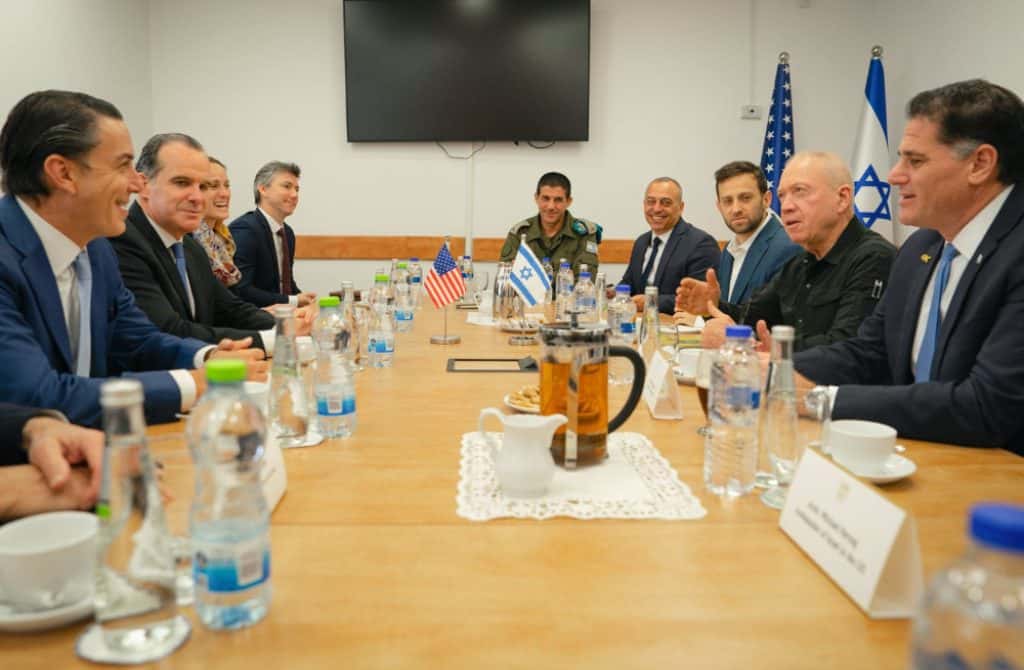
Seven Israelis were killed on October 31 by Hezbollah rocket fire, one of the worst days for civilian casualties in northern Israel since Hezbollah’s rocket attacks began on October 8, 2023. Five people, including four foreign workers, were killed in an agricultural area near Metulla, a community in the far north of Israel that sits directly on the Lebanon border. Two others, a mother and son from the Arab and Druze town of Shfaram, were killed in an olive grove near Haifa.
The high death toll comes as the overall number of rockets fired by Hezbollah has slightly declined over the last two weeks. During the first two weeks of October, the Iranian-backed group often launched around 200 to 250 projectiles a day that crossed into Israel. Most were rockets, and some were drones. In the last two weeks of October, the number of projectiles crossing into Israel has averaged closer to 100. However, the number of people killed and wounded has increased, as several rockets fell on Arab communities such as Majd al-Krum and Tamra, and a man was killed in the Druze and Arab town of Tarshiha.
Today’s Israeli deaths happened as the Israel Defense Forces (IDF) continues to uncover Hezbollah terrorist infrastructure in southern Lebanon. The IDF called on people to evacuate the Lebanese city of Baalbek, which is around 80 miles north of the Israeli border. Hezbollah has a presence in the city, which is known for its historic Roman temples. During the war in Lebanon, there have been concerns that bombing, even if it is precise, could affect historic sites in Baalbek and the city of Tyre, which has been targeted in the last week by Israel.
The evacuation orders for Baalbek and Hezbollah’s rocket fire come as Israeli media and pro-Iranian media in the region mentioned a possible ceasefire between Israel and Lebanon. Israel and Lebanon are not at war, but Hezbollah is portrayed as abiding by a deal that Lebanon might make. On the morning of October 31, the Islamic Republic News Agency (IRNA), the regime’s official media organization, reported that “Lebanon’s Prime Minister Najib Mikati has expressed hope that a ceasefire will be established in his country in the next few hours.” No ceasefire materialized during the day, however.
Israeli Minister of Defense Yoav Gallant and Minister of Strategic Affairs Ron Dermer met with
White House Coordinator for the Middle East and North Africa Brett McGurk and Senior Advisor to the US President Amos Hochstein. The US ambassador to Israel and his Israeli counterpart also attended the meeting. “The discussion focused on strategic challenges and opportunities in the region—namely, security arrangements as these relate to the northern arena and Lebanon, and efforts to ensure the return of 101 hostages still held by Hamas in Gaza,” Gallant’s office noted in a statement.
In Lebanon, the IDF struck what it said were Hezbollah command-and-control centers in the area of Al Housh in southern Lebanon. “Hezbollah systematically takes control of civilian areas and infrastructures throughout Lebanon and embeds commanders and operatives in civilian areas in order to plan and carry out terror attacks, placing Lebanese civilians in danger,” the IDF stated. The Israeli military also accused Hezbollah of storing weapons in the town of Al-Qusayr on the Syria-Lebanon border. The site is used to move weapons from Syria into Lebanon for the group, and the IDF carried out a strike on weapons storage facilities in the Qusayr area.
In southern Lebanon, Israeli ground forces from the 146th Division found more Hezbollah weapons. “They eliminated dozens of terrorists in close-quarters encounters and through airstrikes, and located numerous weapons, including a ready-to-launch launcher loaded with rockets,” the IDF said.







